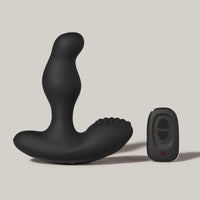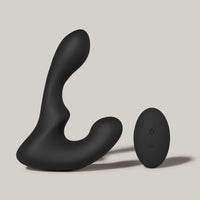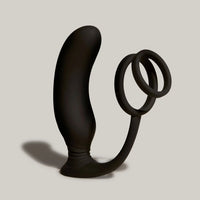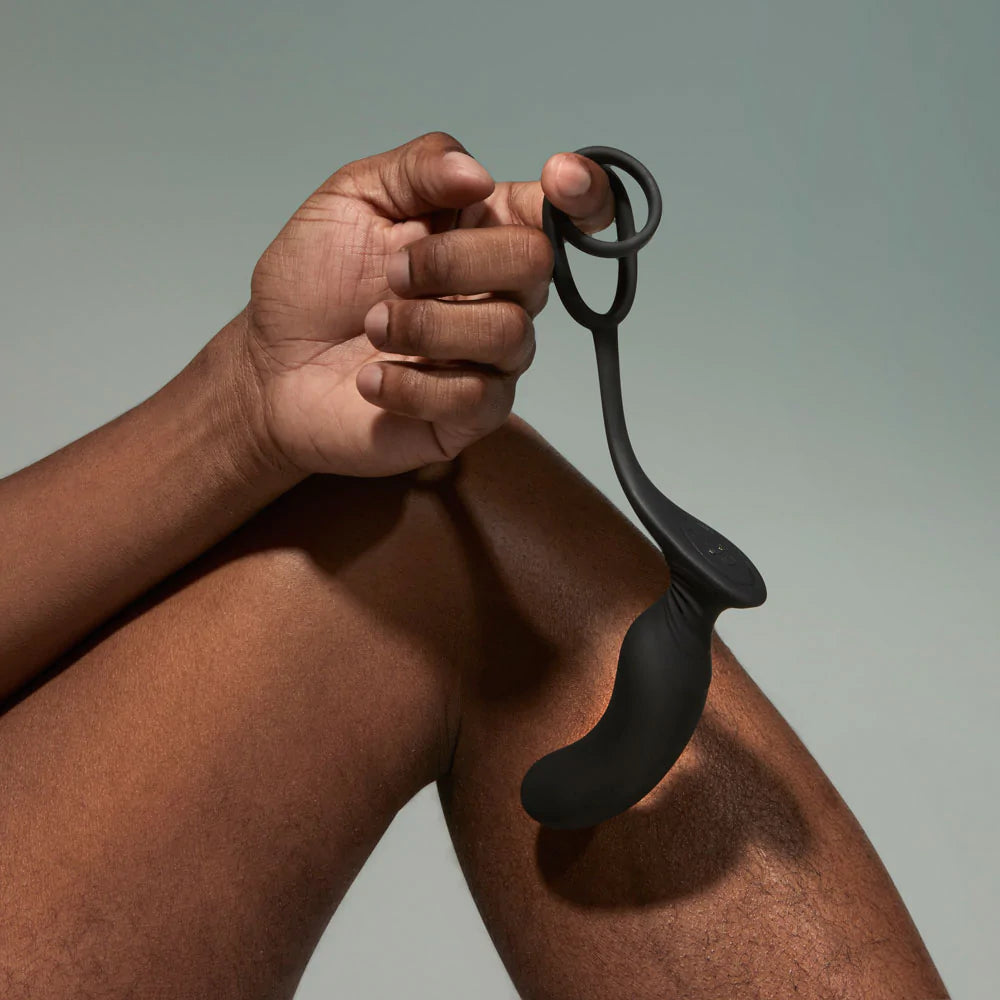Free cock ring. Major savings. Zero regrets.

How Does Prostate Surgery Affect You Sexually?
We’ve all walked out of the doctor’s office and realized we forgot to ask some important questions we meant to. If your doctor recommends prostate surgery, the anxiety that causes can often push all of those questions out of your mind.
One of the big things people wonder about is the impact the surgery will have on them in the bedroom. How does prostate surgery affect you sexually?
We’ve got everything you need to know, but don’t forget to check with your healthcare provider for more information.
What Is the Prostate?

Before we dig into how prostate surgery can affect you sexually, we want to ensure you have at least a basic understanding of what the prostate is and how it works. Your prostate health is essential as a component of your sexual health and overall health and wellness.
Your prostate is one of many glands in the body. It is located inside the body at the base of the penis, between the bladder and the rectum. The prostate is about the size of a walnut and is rubbery in consistency.
The prostate performs many crucial jobs in the body for the reproductive/sexual and urinary systems. It creates a large portion of the fluid that makes up semen (the fluid that is ejaculated during an orgasm), and the muscles surrounding it generate the force needed to push those fluids out.
Unfortunately, the prostate isn’t immune to developing medical issues, including cancer. Some treatment options for these conditions, like prostate cancer treatment, may include surgical intervention. Although sexual intercourse won’t be at the top of your list when thinking about the possible side effects of prostate cancer surgery (and potential radiation therapy), it’s good to know the risk factors.
What Is Prostate Surgery?
As we said, surgery is the most common choice for treating localized prostate cancer. For most people to qualify, cancer can not have spread outside of the prostate gland.
While there are a few different types of prostate surgery, the primary type is a radical prostatectomy. If you’re unfamiliar with medical terminology, radical means “extensive,” and prostatectomy means “removing the prostate.”
When you undergo a radical prostatectomy, they take out the entire prostate gland and any tissue surrounding it that may be cancerous. In many cases, this also includes the seminal vesicles, glands that produce fluids that turn into semen.
There are different ways that surgeons approach a radical prostatectomy. The first is an “open” prostatectomy, which is an old-school approach. With open surgeries, the operating surgeon makes a single, long incision that they work through to remove the prostate.
Open prostatectomies can be done in the retropubic area (in the lower abdomen) or the perineal area (between the anus and scrotum). In both cases, you will be under anesthesia of some kind. Radical retropubic prostatectomies are far more common, as they reduce the risk of erectile issues.
The other, increasingly common type of radical prostatectomy is laparoscopic. Laparoscopic surgeries have a lot of advantages over open surgeries, like shorter hospital stays, less blood loss, and faster recovery times.
Instead of requiring a large, open incision, laparoscopic prostate surgeries use the help of a camera through several tiny incisions in the abdominal wall. Many other common surgeries, like hysterectomies and gallbladder removals, are also done using this technology.
TURP Surgery

Not all prostate surgeries involve cancer, though. People who deal with benign prostatic hyperplasia (BPH or enlarged prostate) are also frequent candidates for surgery. Instead of removing the entire gland, like with radical prostatectomy, TURP surgery (which stands for transurethral resection of the prostate) focuses on the inner area of the prostate.
Specifically, the surgeons take out the part of the gland that surrounds the urethra (the tube that allows urine to leave the body). Instead of needing incisions, TURPs inserts a surgical tool into the urethra until it reaches the prostate. Once there, the surgeon uses electricity or lasers to cut or vaporize the area.
Can Prostate Surgery Affect Me Sexually?
As you know, the prostate plays a vital role in sexual function. If your doctor suggests the removal of yours, it’s normal to worry about how that will impact your sexual function.
The truth is that some sexual performance issues can occur after having a prostatectomy. Knowing what to expect can help you find workarounds, and the majority of people are still able to have a fulfilling sex life even though it may change a little. Let’s address two of the more common issues you may encounter.
Prostate Surgery and Erectile Dysfunction
Another potential side effect of prostate surgery is erectile dysfunction (also known as impotence or ED). While this may not be complete erectile dysfunction, it can make penetration of a partner difficult. Luckily, in many cases, these side effects are temporary and can be managed through medications and a little patience.
Erectile dysfunction drugs help improve blood flow to the penis, which can help make achieving an erection more likely. They are also PDE5 inhibitors, blocking the release of an enzyme in the blood vessels and helping them relax.
Cialis (tadalafil), Levitra (vardenafil), and Viagra (sildenafil) are three of the most common oral medications used. A newer medication, Stendra (avanafil), may have even fewer side effects. Ask your doctor about Muse (alprostadil) if you prefer an injectible medication.
Vacuum constriction devices (VCD) or vacuum erection devices (VED) can also offer significant benefits. You may have heard these referred to as “penis pumps.” When placed over the penis, the device is “pumped” up to create a vacuum. The vacuum pump draws blood into the penis, causing swelling and eventually an erection.
If you develop permanent erectile dysfunction, there are still ways to achieve an erection. Some people elect to have surgical penile implants placed. Although you must wait until you have entirely healed from prostate surgery, these prosthesis devices offer an excellent way to maintain sexual function.
Prostate Surgery and Ejaculation
The prostate plays a crucial role in creating the fluids that make up semen. Removing the process can impact the ability to ejaculate, but it shouldn’t affect the ability to have an orgasm.
Orgasms should still be just as pleasurable as before surgery, but you won’t see any fluid (known as dry orgasms). Unfortunately, like every surgery, this isn’t true for everyone — a small percentage of people may experience painful or less pleasurable orgasms.
This occurs because part of surgical intervention includes cutting the area that connects the urethra and testicles. Although you’ll still make sperm, it can’t flow from the testicles and out of the penis.
Obviously, this also impacts your fertility, although most people who undergo prostate surgery are often out of their child-rearing years. However, it won’t affect your sexual desire.
Prostate Massage After Surgery

If you enjoyed prostate massage before surgical intervention, you might still be able to use those same massagers even after your prostate has been removed. Although there isn’t a lot of science to back it yet, a Danish researcher named Dr. Mikkel Fode suggested using a technique called “Penile Transcutaneous Mechanical Nerve Stimulation” to help with erectile issues after surgery.
The study theorizes that placing a vibrating device against the frenulum of the penis can excite nerve pathways that connect to the ejaculatory nerve bundles located at the base of the spine. Although physical ejaculation isn’t always possible, those nerves are situated next to those that create and maintain erections.
Stimulating one set of nerves may stimulate the other, helping increase the likelihood of erections even post-surgically. So don’t throw away your Tomo II just yet — it could be a vital key to penile rehabilitation!
Pelvic Floor Therapy
Pelvic floor therapy is about more than just fixing postpartum incontinence. While the pelvic floor is vital for promoting urinary continence, it is also a first-line treatment for erectile dysfunction.
The pelvic floor is a group of muscles that everyone has. They stretch from the tailbone to the pubic bone and from one sit bone to the other, supporting the pelvic organs like a sling.
In people assigned male at birth, the pelvic floor isn’t something that requires any attention until something goes wrong. However, a weak pelvic floor can contribute to various health-related symptoms.
Regarding erections, the pelvic floor helps manage blood flow to the penis. A strong pelvic flood can trap the blood inside the penis, creating a strong, solid erection. If the pelvic floor is weak, it’s much easier for the blood to flow back out of the penis, which contributes to erectile dysfunction.
Pelvic floor therapy can help to strengthen the pelvic floor, especially after prostate surgery. Your doctor can recommend a pelvic floor therapist who can teach you how to do pelvic floor exercises correctly. After that, you can usually start doing them at home on your own time.
When Will I Know if I Have Sexual Dysfunction After Surgery?

We’d be willing to bet that you’re not going to want to jump into bed as soon as you get home from having prostate surgery, but how long should you expect it to take for sexual dysfunction to show up?
Even less invasive forms of prostate surgery, like those done laparoscopically, take time to heal. Prostate surgery recovery is a slow process; it may take a few months before you see its impact on your sexual life.
Talk to your doctor about any concerns you may have, and keep a log if you’re noticing issues with your sex life after surgery.
In Summary
How does prostate surgery affect you sexually? While it may initially impact your erectile function and ability to ejaculate, there are ways to maintain your quality of life until your body can heal itself.
Most prostate cancer patients are still able to continue to have fulfilling, satisfying sexual activity, even post-surgically. GIDDI is here for all of your prostate-related needs, even after surgery!
Sources:
Surgery for Prostate Cancer | American Cancer Society
Erectile Dysfunction After Prostate Cancer | Johns Hopkins Medicine











